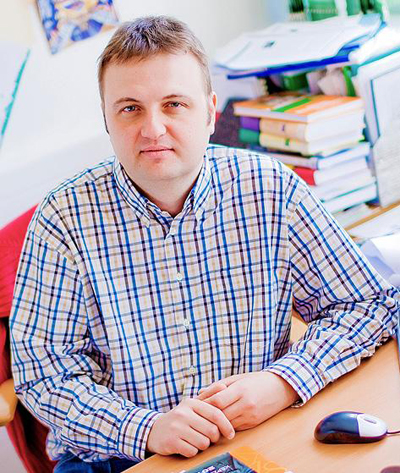Jesteś tutaj: Publicystyka » Inni publicyści » Interview with Pánczél Hegedűs János
Interview with Pánczél Hegedűs János
rozmawiał Adam Tomasz Witczak

Could you describe us the modern Hungarian monarchist movement in a few words? What are the main organizations, people and magazines?
We cannot really talk about a movement I think; rather we could call it a community, or an intellectual workshop, the basis of which is the portal Regnum! Around this portal are blogs and people who are helping us. But I think the more pressing issue here is to use these messages and content to reform the Hungarian public thought. This is what we are working on and also, we are trying to make the restoration of the monarchy part of the public talk, this sympathy being carried on by politicians, voices in the media, artists and common people.
For more than hundred years (between 1795 and 1918) there was no Poland on the map of Europe and, as you know, a big part of our country was under the reign of Austrian and then Austro-Hungarian monarchy. So in general we think about this monarchy as a conqueror government and we always wanted independence (although we can have a kind of respect and sentiment to A-H Empire). But it seems that Hungarian monarchists consider Austro-Hungarian Empire and Habsburg family as a part of their tradition and inspiration. Why is that so?
We are thinking in a national monarchy and a national king, this could not be otherwise. The Austro-Hungarian Monarchy fell apart in 1918, it would be foolish to be delirious about this, let the historians have it. The Habsburg-Lorraine family is our national dynasty of course; after all, they have given us our Apostolic Kings since the 16th century. Of course we are counting on them.
Continuing: how important is a question of legitimism for you? Do you think that it is possible to be a monarchist without being a legitimist? Do you accept the difference between legitimidad de origen and legitimidad de ejercicio which is important for Spanish Carlists?
Legitimism in a republic is a standpoint without actuality or reality. Only monarchism has a reason to exist, the reason being the restoration of the Apostolic Kingdom of Hungary. Inclusively, if the legal, political and social parts of the restoration are done than being a legitimist is a valid standpoint, but right now we are very far from that. We have to concentrate on what exists and that is the republic, our enemy.

What is your opinion about Hungarian nationalism – modern and historical? Do you think that alliances between reactionarists / monarchists and national revolutionaries are good thing?
If it’s a viral and healthy reaction, nationalism may have a positive side in our valueless globalised world. Hungarian nationalism was a dangerous weapon though, that spawned bleak results I think from the 19th century onward. Being a subject of the Holy Crown of Hungary gave the rights to individuals of all nationalities to help and support the state and their communities in our kingdom. This is what I find a useful principle, but of course restoring this will be only possible with the persuasion of the nationalists, who represent a positive side against a global or international lack of values.
What do you think about so-called right parties in Hungary, I mean FIDESZ and Jobbik?
I think that these are the only political parties in which we may be able to find conservative values in the present-day politics of Hungary. These can be linked to persons, statements and certain activities. The closest to me are though the classical Hungarian conservatives (Sigray, Apponyi, Teleki, Dessewffy, Mindszenty).
What’s your opinion about such ideas as integral traditionalism (Evola, Guénon), perennialism (Schuon), German conservative revolution (Jünger, von Salomon, Moeller van den Bruck) and national bolshevism? These ideas seem to be popular among some people on “far right” and also in youth subcultures. Is there anything interesting in this doctrines? Or maybe they are only a kind of “modernist reaction for modernity”?
This became a fashion about 20 years ago. In short sentences: I hold Guénon very high. I like Jünger. Moeller von Bruck and Carl Schmitt are very positive to me, as is the whole conservative revolution in Germany. It comes as no surprise that the Nazis couldn’t deal with them, they were only able to marginalise them (Schmitt, Spengler).
What’s the situation of Catholic traditionalism in Hungary? Are there local expositors of Institute of the Good Shepherd and FSSP? What about FSSPX and sedevacantism?
I think you are asking me this because of ‘Miles Christi’. Right now I don’t have any connections to these organisations, in Hungary Catholic Traditionalism exists in a different way (though one of the fathers is ex-FSSP, but he wasn’t supported to be exposited to Hungary), the Catholic faithful are organising it in a Lay Chapter, and the Militia Templi (not that freemasonic nonsense, but the ecclesiastically approved Knightly Order) are supporting this. The practice of the FSSPX is not to my liking and I dismiss the sedevacantists. Unity with and humility to the throne of St. Peter is very important. I hold the person and the work of our Holy Father, HH Benedict XVI very high. God preserve him in his office!
Please describe us your approach to economy. In Poland two main monarchist organisations (Organizacja Monarchistów Polskich and Klub Zachowawczo-Monarchistyczny) have always supported free-market propaganda and there are quite close relations between monarchists and some “conservative liberals”. But, of course, there are also people who prefer, for example, doctrines of corporationism. What’s your opinion?
I’m not well informed in this topic. In Hungary everyone could be the natural supporter of monarchism, excluding those of course who have purposefully disrupted the legal continuity of the state (national socialists, radical democrats, communists). Mostly I think that the conservatives, rightists and national liberals are our natural allies.

How do you remember Otto von Habsburg and what do you think about his engagement in so-called “pan-european” ideas? And what's your opinion about Charles II (V) and your (hungarian monarchist circles) contacts with him?
Such orientations of Prince Otto are simply not relevant to me. He had me by the Hungarian throne, and under the law of hereditary king. Prince Charles in connection with the Hungarian position difficult, since there is no automatic succession to the case because the father was not crowned. So we can not speak to the firstborn son’s right to be an important criterion according to the ancient Hungarian public law.
Does Hungarian monarchist movement have contacts with monarchists from other countries?
Of course there were attempts from Czech, French, Austrian and now Polish monarchists. If we can, we help each other out but mostly we discuss things. But I don’t think this is the most important issue here, rather, we should spread the cause of our monarchy at home, now, in 2011, to those who live and work here. This is what we aim at, in this we want to grow strong; we don’t want to create some exclusive club.
Thank you for the questions and possibility and God save Poland and the Polish-Hungarian friendship!
Pánczél Hegedűs János is a historian, writer, activist of Hungarian monarchist movement, editor of Regnum! Portal and former editor of Miles Christi magazine.

